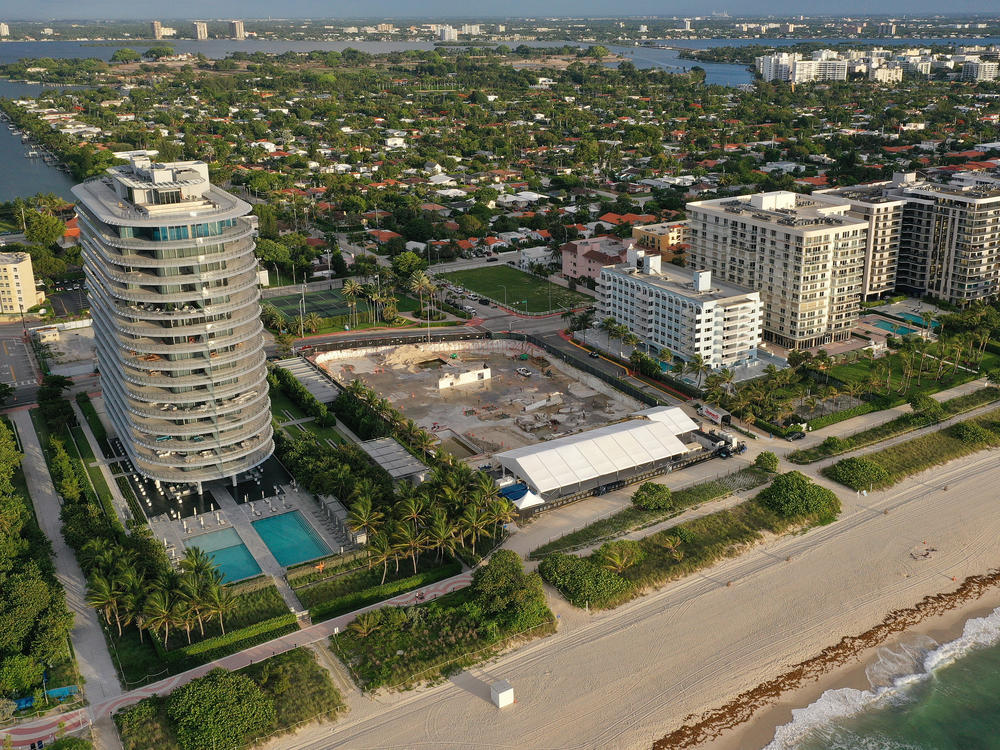Section Branding
Header Content
A Florida condo tower's collapse may have begun on its pool deck
Primary Content
MIAMI — Federal experts say their investigation of the partial collapse of a Florida condominium tower is focusing on the failure of the building's pool deck. It's been two years since a section of the Champlain Towers South building fell in Surfside, killing 98 people.
In what they're calling their "leading failure hypothesis," a team with the National Institute of Standards and Technology says the condo's concrete columns and pool deck were constructed improperly and didn't meet building codes.
These are just preliminary findings, but are the result of thousands of hours of work over the last two years interviewing witnesses, examining design documents and poring over sections of steel reinforced concrete.
One of the lead investigators, Glenn Bell says the evidence the team has examined makes it clear that the 12-story condo tower's pool deck and the columns supporting it weren't built strongly enough. He says, "The design of the structure at (Champlain Towers South) failed to meet the codes and standards applicable at the time of original construction and also would not meet current codes and standards."
The federal team found problems in the way the concrete was cast — in a manner that left it permeable to water, corroding much of its steel reinforcement. Also, the rebar was placed improperly into the cast concrete slabs of the pool deck, leaving those sections weaker than required. In addition, over the building's 40 years, heavy items including large planters containing palm trees were placed on vulnerable sections of the weakened pool deck.
In a Thursday meeting at NIST headquarters in Gaithersburg, Md., investigator Jack Moehle says the team's leading hypothesis is the collapse began when the pool deck failed. "It's lightly reinforced," he said. "It has design deficiencies and construction errors. It was heavily stressed and showed signs of deterioration. So, it's highly suspect that failure initiation due to failure of punching could have happened there." Structural engineers who work with concrete call it a "punching shear" failure.
The NIST team's final report isn't expected for another two years. Family members of those who died and people who survived the collapse reached a $1 billion settlement in the case last year. Meanwhile, a developer has submitted plans to the town of Surfside for a new 12-story beachfront condo tower that will be built on the site of the collapse.
Copyright 2023 NPR. To see more, visit https://www.npr.org.

